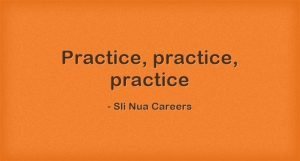Aptitude Tests by Sabina Trench, Career Coach, Sli Nua Careers

You have moved to the next stage of the recruitment process; the aptitude test. You’ve never done one before, so do you wing it and hope for the best? Absolutely not, writes SABINA TRENCH, Career Coach, Sli Nua Careers.
Aptitude tests are often used in the recruitment process, and are particularly popular in the public service sector. But what are they, and why are they used?

What are Aptitude Tests?
Aptitude tests are a standardised approach to testing a candidate’s ability to perform specific tasks and to react to a range of different situations. While there is no prior knowledge required, basic maths are often a feature of the tests.In most cases, you will have limited time to answer a number of questions. Usually, you will be given multiple answers, and all you need to do it check the right one. Sounds easy, right?
Make no mistake: unless you work with numbers, perform exceptionally well under time pressure, and are a speed reader, you will need to practice. Here are some of the most common types of tests:
Numerical Reasoning Aptitude Tests
Simply put, these are mathematical problems. Typical examples include time / speed / distance equations, conversion of decimals to fractions, percentages, ratios, and basic adding and subtracting.
While none of the questions will be particularly challenging, you are under time pressure and errors or misreading the instructions are common failings.
Verbal Reasoning Aptitude Tests
In this case, you will be given a series of paragraphs and you must answer one or more questions on the information within each paragraph. I cannot stress this enough. It is very important that you do not assume, and that you read the text swiftly but accurately. Also, beware of the double negative questions. They are designed to trip you up.
Situational Judgement Tests
These are a little more subjective, and while you don’t want to spend all day on them, they often have no time limit. The content here is more scenario-based.
A scenario might start with ‘you are in charge of four people, one is underperforming. From the following reactions which is more or less desirable’ – and then go on to list the various reactions.
You get several options for each scenario. Answer each one in terms of their desirability.
This one is hard to prepare for in advance. But it’s worth checking a few, so that you get a feel for the test.
Practice, practice, practice
Once you have moved to the aptitude test stage, you will usually be notified that your tests will be available within a certain time window, which could be a few days. During that time, you need to practice, practice, practice.
I suggest that you take a screen picture of the harder questions, so that you can work them out in your own time.
You will get your unique code allowing you to access the tests. Check it in advance to find out if a) it works, and b) there are more practice tests in there that you can take in advance of your real tests.
Once you are prepared, aptitude tests can be enjoyable. Your ability to solve the questions while beating the clock can showcase your talents. It may do so in a way that your CV can never achieve. So get practicing.
Sources for free aptitude tests include:
• www.practiceaptitudetests.com (scores and explains)
• www.cebglobal.com/shldirect/en-us/practice-tests/
• www.jobtestprep.co.uk/freeaptitude.aspx (scores and explains).
Sabina Trench is a Career Coach with Sli Nua Careers, who have offices in Galway, Dublin, Limerick, Athlone, Sligo and Mayo, plus a full online service.
Their services include CV preparation, interview training, personal statements and application forms.